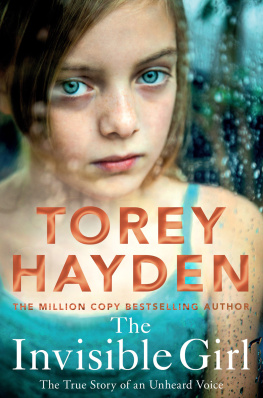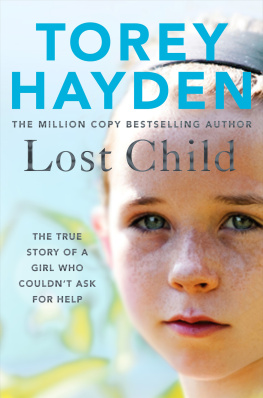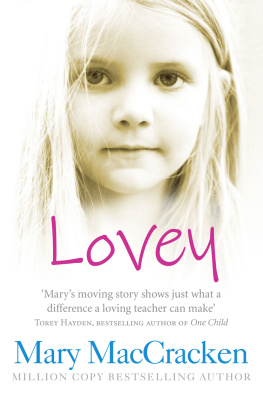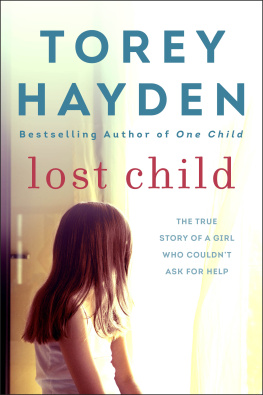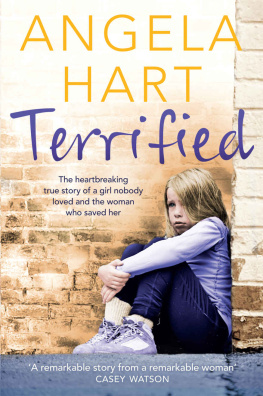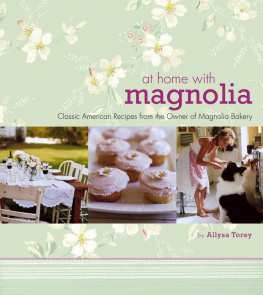Contents
Guide
chapter one
Chairs pulled into a tight circle, the children were taking turns at wearing sticky-backed labels on their foreheads. Each label had an emotion written on it, which the other children were acting out for the label-wearer to guess. The games official name was Emotional Connection, a therapeutic game developed to help children recognize and express emotions. Amongst ourselves we called it the Silly Game, because it caused so much hilarity.
Carly was taking her turn, and her word was angry. A curly haired seven-year-old with Downs syndrome, Carly danced around the circle so energetically that her label kept fluttering to the floor. This didnt matter much because Carly couldnt read, so she just picked it up and stuck it back on. The continual shrieks of You dropped it again! added considerably to the overall chaos of six children trying to outdo each others mimes of angry.
When the door opened, I assumed it was someone from one of the offices, coming to ask us to be quieter. I hoped I could couch my apology in a gentle explanation that this was the last time we were scheduled to be here, and next week wed be in the church hall.
Instead of opening properly, however, the door came ajar an inch or two, paused, then clicked shut again. The children didnt notice and carried on with the game. Perhaps it wasnt anyone after all. The weather was windy and the building draughty. Perhaps the door had not been closed properly and was momentarily sucked off the latch by the wind before being pushed shut. I watched it a moment longer, but when nothing happened I turned my attention back to the children.
A few moments later, the door cracked open again. This time I saw an eye peering through. As soon as I looked, however, the door once again clicked shut. Time to investigate. The game paused briefly when the children saw me stand up, but I gestured for them to continue playing. I went to see what was going on. Hello? I said, pushing the door fully open.
A girl stood in the dimly lit hallway. She looked to be in her early teens, a gangly, oval-faced girl with long, rumpled hair the colour of cardboard. She was dressed in a nondescript school uniform white shirt, black cardigan, black trousers but no tie, so I had no idea which school she attended.
Are you Torey? she asked.
Yes.
Mrs Thomas said you would help me.
Surprised, I raised my eyebrows. I hadnt talked to Meleri in weeks and my charity had not informed me that Id be working with anyone new. The session I was running that day was the only work I was currently doing for Social Services. Known as an enrichment group, it was for special needs children of eight and under, who came from disadvantaged backgrounds. We met for an hour each week to work on social skills. I knew nothing about a teenage girl.
Whats your name? I asked.
Eloise.
Eloise what?
She paused and gave a very slight shrug, as if she had to think about it, then replied, Eloise Jones.
The momentary halt made me think she was reluctant to give her surname, so perhaps this was false. Even if it werent, I wouldnt be much the wiser. Almost a third of the people in our part of Wales were surnamed Jones.
There seems to have been a mix-up, because I dont have you on my schedule, I said.
Mrs Thomas told me you could help me, she replied.
I glanced at my watch. This group doesnt end until 4.30. Im not free before then.
Her expression was hard to read. There was a vacancy to it that made me feel as if I was asking confusing questions.
I have to go back in the room now, I said, not needing to imagine the chaos taking place because I could hear it. I opened the door wide to let the kids know I was right there.
Can I wait? Eloise asked.
Itll be at least twenty minutes.
Thats okay.
I didnt have a good reason to refuse her. We were just playing a game. Nothing private was taking place, so I said, Yes, thats fine, and went back into the room to rejoin the children.
Eloise followed me in.
Whos she? one of the boys asked.
Yes, who are you? another one called across the room.
This is a guest. Her name is Eloise. How do we greet a guest, Dylan? Do we shout Who are you? or do we say... ?
I know! I know! I know! Miss, I know! This was eight-year-old Sallie, pushing her way out of the circle to run up to us. How do you do? she said to Eloise. Hello, how is the weather? Sallies social graces might have carried slightly more weight if she hadnt had the word Disgust plastered to her forehead.
There was a line of chairs along the side wall and Id assumed Eloise would choose one of these until Id finished with the group, but she came with me over to our circle and sat down with us.
The children were fascinated. Most of them were too shy to speak to her, but they danced back and forth, unwilling to return to the Silly Game. Dylan, who was seven, a sturdy boy with the physique of a miniature rugby player, had no such hesitancy. Who are you? Why are you here?
I said, This is Eloise. Shes visiting for today.
But why?
This was hard to answer, given I didnt know myself. Shes visiting, Dylan. Thats enough information.
Where do you come from? he asked her.
Dylan, please sit down, I said.
Are you Welsh? he asked.
Dylan...
T siarad Cymraeg?
Dylan...
I just want to know, is she going to be in this group? Are you going to be in this group? Because youre too big to be in this group. And weve got enough girls already.
Stedd i lawr. I rose from my chair to ensure he did. He backed away and took his seat but continued to eye Eloise suspiciously.
Realizing that we werent going to recapture the focus needed for the game, I decided to finish off with a story. I chose Judith Kerrs The Tiger Who Came to Tea for its engaging plot regarding a young girl who suddenly discovers a gentlemanly tiger at her door, and for the underlying emotions it provokes in particular, excitement and anxiety. Who wouldnt be excited at the thought of hosting a real, live tiger in their house? Who wouldnt feel anxious about it?
I read the story and when I finished, I said, He was a very hungry tiger, wasnt he? What was the first thing he ate?
People, Carly said. Tigers eat people.
But this tiger in the story didnt eat anyone, did he? What did he eat?
Tigers eat people, Carly insisted.
They bought him tiger food, Owen said.
At the end, they decided they would buy a tin of tiger food in case he visited again, I replied. But they didnt give him any tiger food when he came to tea. What did they give him?
Dylan huffed. There isnt such a thing as tiger food. You couldnt go to the shops and buy a tin of tiger food.
What did they give him? I asked again.
Everything! Sallie replied. Everything they had for tea. And he drank everything too. All their tea and their orange juice and even all their water.
Thank you, I said, relieved someone had been listening.
I dont think its possible to drink all the water in the tap, Eloise said.
Surprised, I looked over.
Eloise continued, The tap is connected to the water mains. To drink the tap dry, hed have to drink a whole reservoir of water. That isnt very realistic.
The children were as taken aback as I was that Eloise had joined the conversation. They, I think, more because it had never occurred to them exactly how much water was in the tap in their kitchen. Me, because I hadnt expected her participation, to say nothing of the fact that this was a fictional story about a tiger sitting down at the table to share tea with a little girl and her mum, so not exactly a wildlife documentary.

